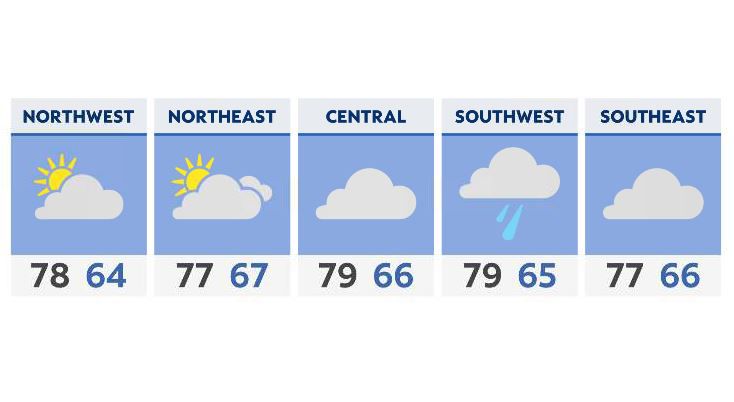President Joe Biden authorized the deployment of 5,000 U.S. troops to Afghanistan on Saturday to aid in the “orderly and safe drawdown” of U.S. and allied personnel, and Afghan allies who aided the U.S. and NATO allies.
The president also discussed a range of actions his administraion is doing to combat further aggression in Afghanistan, including warning Taliban insurgents “that any action on their part” that puts U.S. personnel in danger would be met by a “swift and strong” response from the U.S military.
His remarks come as the U.S. moves to evacuate some personnel from the U.S. Embassy in Kabul, as well as Afghan allies who have assisted U.S. troops in their nearly 20-year mission in the country.
The decision to bolster the troop size comes just two days after the U.S. first ordered 3,000 troops be sent to Kabul to aid in the evacuation, reflecting the dire and quickly-changing security situation on the ground as Taliban insurgents continued their procession towards Kabul.
“Over the past several days I have been in close contact with my national security team to give them direction on how to protect our interests and values as we end our military mission in Afghanistan,” Biden said in a statement Saturday.
“First, based on the recommendations of our diplomatic, military, and intelligence teams, I have authorized the deployment of approximately 5,000 US troops to make sure we can have an orderly and safe drawdown of U.S. personnel and other allied personnel and an orderly and safe evacuation of Afghans who helped our troops during our mission and those at special risk from the Taliban advance,” the president continued.
In addition, he said, the U.S has conveyed to Taliban representatives that “any action on their part on the ground in Afghanistan, that puts U.S. personnel or our mission at risk there, will be met with a swift and strong U.S. military response.”
Biden also ordered the intelligence community and armed forces to ensure that they can “address future terrorist threats from Afghanistan,” and directed Secretary of State Antony Blinken to “engage with key regional stakeholders” and “support President [Ashraf] Ghani and other Afghan leaders” as they seek to resolve the conflict through diplomacy.
Blinken spoke with President Ghani on Saturday, with the State Department confirmed in a separate statement, noting that they “discussed the urgency of ongoing diplomatic and political efforts to reduce the violence” in Afghanistan.
Secretary Blinken also “emphasized the United States’ commitment to a strong diplomatic and security relationship with the Government of Afghanistan and our continuing support for the people of Afghanistan,” the statement continued.
The president tapped Tracey Jacobson, a career diplomat under the Bush, Obama and Trump administrations, to lead a whole-of-government effort “to process, transport, and relocate Afghan special immigrant visa applicants and other Afghan allies.”
“Our hearts go out to the brave Afghan men and women who are now at risk,” Biden continued. “We are working to evacuate thousands of those who helped our cause and their families.”
Also on Saturday, a new contingent of Marines arrived in Kabul, joining an advance group of Marines who arrived the previous day.
The last-minute decision to re-insert thousands of U.S. troops into Afghanistan calls into question whether President Joe Biden will meet his Aug. 31 deadline for fully withdrawing combat forces – an idea that the president’s statement Saturday firmly attempted to put to rest.
“One more year, or five more years, of U.S. military presence would not have made a difference if the Afghan military cannot or will not hold its own country,” Biden said. “And an endless American presence in the middle of another country’s civil conflict was not acceptable to me.”
He continued: “When I came to office, I inherited a deal cut by my predecessor—which he invited the Taliban to discuss at Camp David on the eve of 9/11 of 2019—that left the Taliban in the strongest position militarily since 2001 and imposed a May 1, 2021 deadline on US forces. Shortly before he left office, he also drew US forces down to a bare minimum of 2,500. Therefore, when I became President, I faced a choice—follow through on the deal, with a brief extension to get our forces and our allies’ forces out safely, or ramp up our presence and send more American troops to fight once again in another country’s civil conflict.”
“I was the fourth President to preside over an American troop presence in Afghanistan—two Republicans, two Democrats,” Biden said in conclusion. “I would not, and will not, pass this war onto a fifth.”
Still, officials have stressed that the newly arriving troops’ mission is limited to assisting the airlift of embassy personnel and Afghan allies, and they expect to complete it by month’s end. But they might have to stay longer if the embassy is threatened by a Taliban takeover of Kabul by then.
As the situation in Afghanistan rapidly worsened, President Biden and Vice President Kamala Harris held a secure video conference on Saturday morning with national security officials. They discussed efforts to reduce the number of U.S. civilians in Afghanistan, evacuate Afghans who worked with the U.S. government and the fast-moving changes on the ground, the White House said.
On Saturday, the Taliban captured Mazar-e-Sharif, a large heavily defended city in northern Afghanistan, and closed in on Kabul by taking the Logar province just to the south. The Taliban have made major advances in recent days, including capturing Herat and Kandahar, the country’s second- and third-largest cities.
“Clearly from their actions, it appears as if they are trying to get Kabul isolated,” Pentagon spokesman John Kirby said, referring to the Taliban’s speedy and efficient takedown of major provincial capitals this past week.
Biden had given the Pentagon until Aug. 31 to complete the withdrawal of the 2,500 to 3,000 troops that were in Afghanistan when he announced in April that he was ending U.S. involvement in the war. That number has dropped to just under 1,000, and all but about 650 are scheduled to be gone by the end of the month; the 650 are to remain to help protect the U.S. diplomatic presence, including with aircraft and defensive weapons at the Kabul airport.
But Thursday’s decision to dispatch 3,000 fresh troops to the airport adds a new twist to the U.S. withdrawal. There is no discussion of rejoining the war, but the number of troops needed for security will depend on decisions about keeping the embassy open and the extent of a Taliban threat to the capital in coming days.
Having the Aug. 31 deadline pass with thousands of U.S. troops in the country would be awkward for Biden given his insistence on ending the 20-year U.S. war by that date. Republicans have already criticized the withdrawal as a mistake and ill-planned, though there’s little political appetite by either party to send fresh troops to fight the Taliban.
Kirby declined on Friday to discuss any assessment of whether the Taliban are likely soon to converge on Kabul, but the urgent movement of extra U.S. troops into Afghanistan to assist the embassy drawdown is clear evidence of Washington’s worry that after the rapid fall of major cities this week with relatively little Afghan government resistance, Kabul is endangered.
President Ghani delivered a televised speech Saturday, his first public appearance since the recent Taliban gains, and pledged not to give up the “achievements” of the 20 years since the U.S. toppled the Taliban after the 9/11 attacks.
The Biden administration has asserted that Afghan security forces have tangible advantages over the insurgents, including a viable air force and superior numbers. The statement serves to highlight the fact that what the Afghan forces lack is motivation to fight in a circumstance where the Taliban seem to have decisive momentum.
Stephen Biddle, a professor of international and public affairs at Columbia University, said in an interview the announcement that 3,000 U.S. troops were heading to Kabul to help pull out American diplomats and embassy staff likely made Afghan morale even worse.
“The message that sent to Afghans is: ‘The city of Kabul is going to fall so fast that we can’t organize an orderly withdrawal from the embassy,’” Biddle said. This suggests to Afghans that the Americans see little future for the government and that “this place could be toast within hours.”
The Pentagon also is moving an additional 4,500 to 5,000 troops to bases in the Gulf countries of Qatar and Kuwait, including 1,000 to Qatar to speed up visa processing for Afghan translators and others who fear retribution from the Taliban for their past work with Americans, and their family members.
The State Department said the embassy in Kabul will remain partially staffed and functioning, but Thursday’s decision to evacuate a significant number of embassy staff and bring in the thousands of additional U.S. troops is a sign of waning confidence in the Afghan government’s ability to hold off the Taliban surge. The Biden administration has not ruled out a full embassy evacuation or possibly relocating embassy operations to the Kabul airport.
There were a little over 4,000 personnel still at the embassy; the State Department has not said how many are being pulled out in the next two weeks.
The Biden administration warned Taliban officials directly that the U.S. would respond if the Taliban attacked Americans during the stepped-up deployments and evacuations.
The Associated Press contributed to this report.




